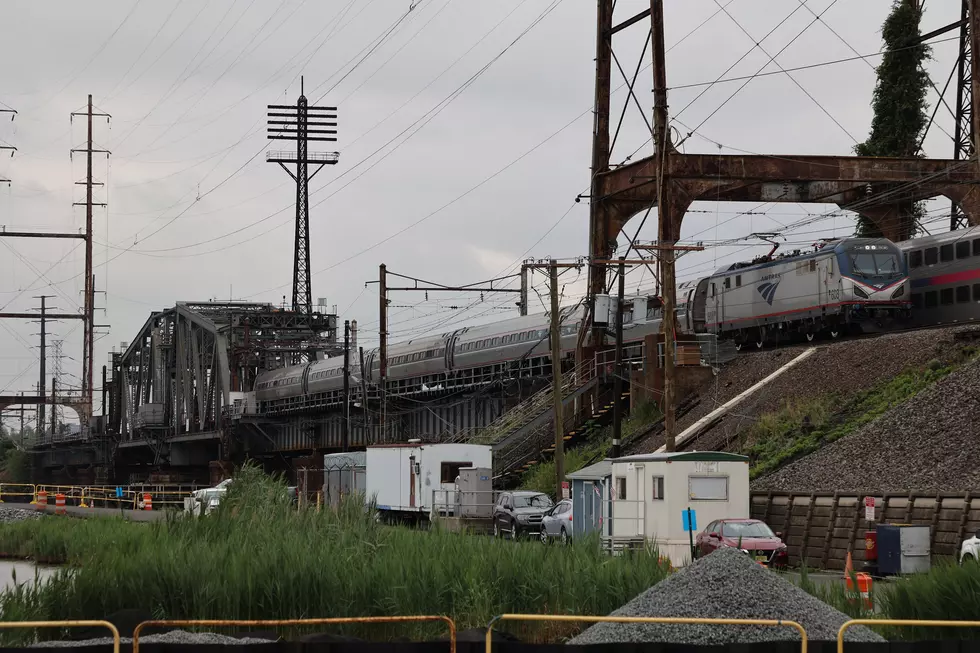
Sandy damage claim denials come under new scrutiny
New Jersey homeowners who have filed suit over denials or reductions in Superstorm Sandy damage claims should be taking a closer look at their paperwork, officials say. Suspicious alterations in the engineering reports used by insurance carriers have emerged both here and in New York.
A spokesman for U.S. Sen. Bob Menendez (D-New Jersey), said Wednesday that the senator's office has begun receiving copies of insurance documents released to Jersey homeowners which appear to contradict claim denials or "lowballing" of payments on claims for damage from the massive 2012 storm.
The spokesman, Steve Sandberg, said the New Jersey disclosures were forced by the Federal Emergency Management Agency, at the behest of Menendez.
A probe into such practices by the New York State Attorney General's office was cited Tuesday in a report by The New York Times, which also quoted several attorneys whose clients had obtained the original engineering reports associated with their claims under a court order issued by a federal judge last November.
The story cited one case in which a Fire Island resident who had been told an engineer's inspection found his flooding damage to be 'unrelated' to Superstorm Sandy later discovered that the engineer's report had in fact said the opposite. His lawyer, Steven Bertolino, said Wednesday, "I find it hard to believe that this situation is isolated only to New York homeowners, when the culprits are national insurance carriers and their adjusters and their engineers."
Confirming Bertolino's view, Menendez's office said that New Jersey homeowners with pending suits over Sandy claim denials have begun receiving similar documentary evidence as the result of a FEMA order for such engineering reports to be released.
Steve Sandberg, the senator's press secretary, said Menendez began pressing FEMA administrator W. Craig Fugate for the order last July, in an effort joined by U.S. Sen. Cory Booker (D-New Jersey) and U.S. senators Charles Schumer and Kirsten Gillibrand of New York, also Democrats.
While the federal court order and the New York Attorney General's probe only cover cases in that state, Sandberg said, "There is also a FEMA investigation of New Jersey and New York cases - this is is not just a New York thing."
The force of the federal court order could be added to pending New Jersey suits if an attorney for any New Jersey plaintiff chose to pursue that outcome, Bertolino said. "It only takes one New Jersey case," the Long Island, N.Y. lawyer said.
More than 1,000 cases in New York are covered by the court order, according to The Times, and lawyers in those cases have already identified 500 in which engineering reports were altered to avoid or reduce payment of Sandy damage claims.
Spokespersons for New Jersey's Community Affairs and Banking and Insurance Departments and Attorney General's office said Tuesday that they have received no complaints from Garden State residents alleging such practices.
"While we've had a number of applicants express dissatisfaction with their insurance settlements and/or complain about fighting with their insurance companies over insurance payments, we have not received a complaint specific to the issue on which the NY Times reported today," said Lisa M. Ryan, a spokesperson for the New Jersey Department of Consumer Affairs.
The newspaper also quoted insurance industry spokespersons, who expressed doubt that such practices could be widespread, since the money to pay the claims came from the Federal Emergency Management Agency funds and not from the insurance companies directly.
But Menendez' office disputes this argument, pointing out that insurance carriers face financial penalties for overpaying claims, a legislative legacy of widespread claim fraud after Hurricane Katrina in 2005.
"For underpayment," Sandberg said, "while there is a also penalty structure, in fact it has never ever, ever once been enforced."
As for New Jersey homeowners who do not have lawsuits pending over reduced or rejected Sandy damage claims, Sandberg said, "We would hope that, in the spirit of transparency, the insurance carriers would release the engineering reports for all such claims."
Kevin McArdle contributed to this report.
More From New Jersey 101.5 FM









